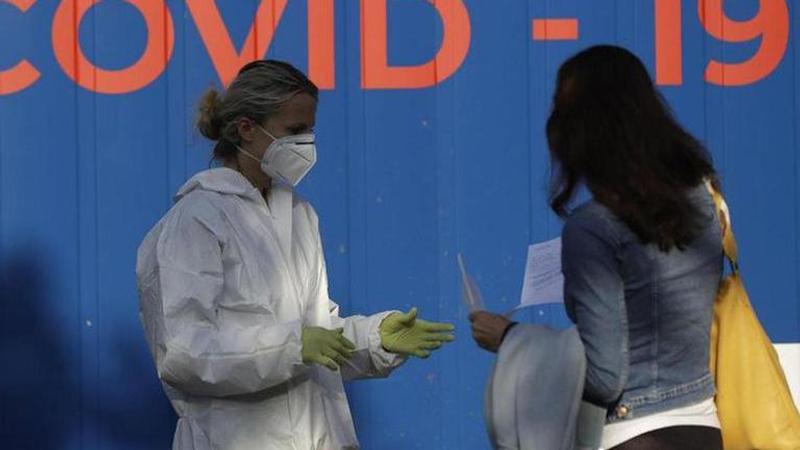Published 08:17 IST, September 29th 2020
US: Black businesses tap "resiliency funds" amid COVID
"Resiliency funds" are helping Black-owned business stay afloat during the coronavirus pandemic, continuing a long tradition of mutual aid within African American communities with limited access to resources and capital.

"Resiliency funds" are helping Black-owned business stay afloat during the coronavirus pandemic, continuing a long tradition of mutual aid within African American communities with limited access to resources and capital.
The Oakland African American Chamber of Commerce announced this summer it had raised $1 million for its "resiliency fund" to help Black-owned businesses during the coronavirus pandemic. It received donations from more than 200 companies and individuals and expects to award grants to some 150 recipients ranging from $2,500 to $10,000.
It's one of several such funds created in the U.S. since the pandemic closed businesses and schools in the spring. It's a nod not only to the disproportionate impact the virus has had on African American families but also the difficulty Black businesses have in landing bank loans.
Cathy Adams, who heads the Oakland chamber, said launched the fundraising initiative because so many member businesses were having trouble getting financial help from the Coronavirus Aid, Relief, and Economic Security (CARES) Act, passed by Congress in March.
"Black-owned businesses have been marginalized for so long. And we figured we had a call to action to do something," Adams said.
Among the recipients of the Oakland chamber's grants is Judi Henderson, owner of Mannequin Madness, which sells used mannequins and hosts art classes at its Oakland shop.
Henderson said her store was forced to shutdown for a month and a half, and business has been much slower since re-opening in May. The $10,000 grant has allowed her to start new services, including a photography studio for dogs.
"I'm standing here right now because we did get the resiliency fund. I only had enough to kind of just pay payroll for a couple of more months," Henderson said. "Now that we have some new initiatives, we have other revenue streams coming in. And that's what's helping to keep things up."
Aaron Bryant, a curator with the National Museum of African American History and Culture in Washington D.C., says the funds are similar to the benevolent societies and mutual aid societies that cropped up in New Orleans, New York and Philadelphia starting in the late 1700s to aid Black people in times of financial hardship, such as illness or death.
Yet Shawn Ginwright, an education professor in the Africana Studies Department at San Francisco State University, says any celebration of resiliency is incomplete without a critical look at the discriminatory policies that have shut out African Americans from acquiring capital and wealth.
Fashion designer and entrepreneur Iguehi James, who works out of her basement, said her business was hit hard by the pandemic. She previously earned most of her income from selling her colorful dresses, head wraps and kaftans at festivals and conferences, but nearly all of those events were canceled this year.
The $5,000 James received from the Oakland African American Chamber of Commerce has helped her expand her online presence and pivot into a new business: face masks.
But more than the fiscal help, the grant reminded the 38-year-old novice entrepreneur that she was part of a community that for centuries has mobilized to help members in times of distress. The application process was simple and she qualified for a $5,000 "resiliency" grant, despite being a solo practitioner with no employees or storefront.
"I think just the African-American community in general, we have a history of having to support each other," James said. "Oftentimes we have to turn to our neighbor and turn to people within our community to assist us, to help us."
Updated 08:17 IST, September 29th 2020




